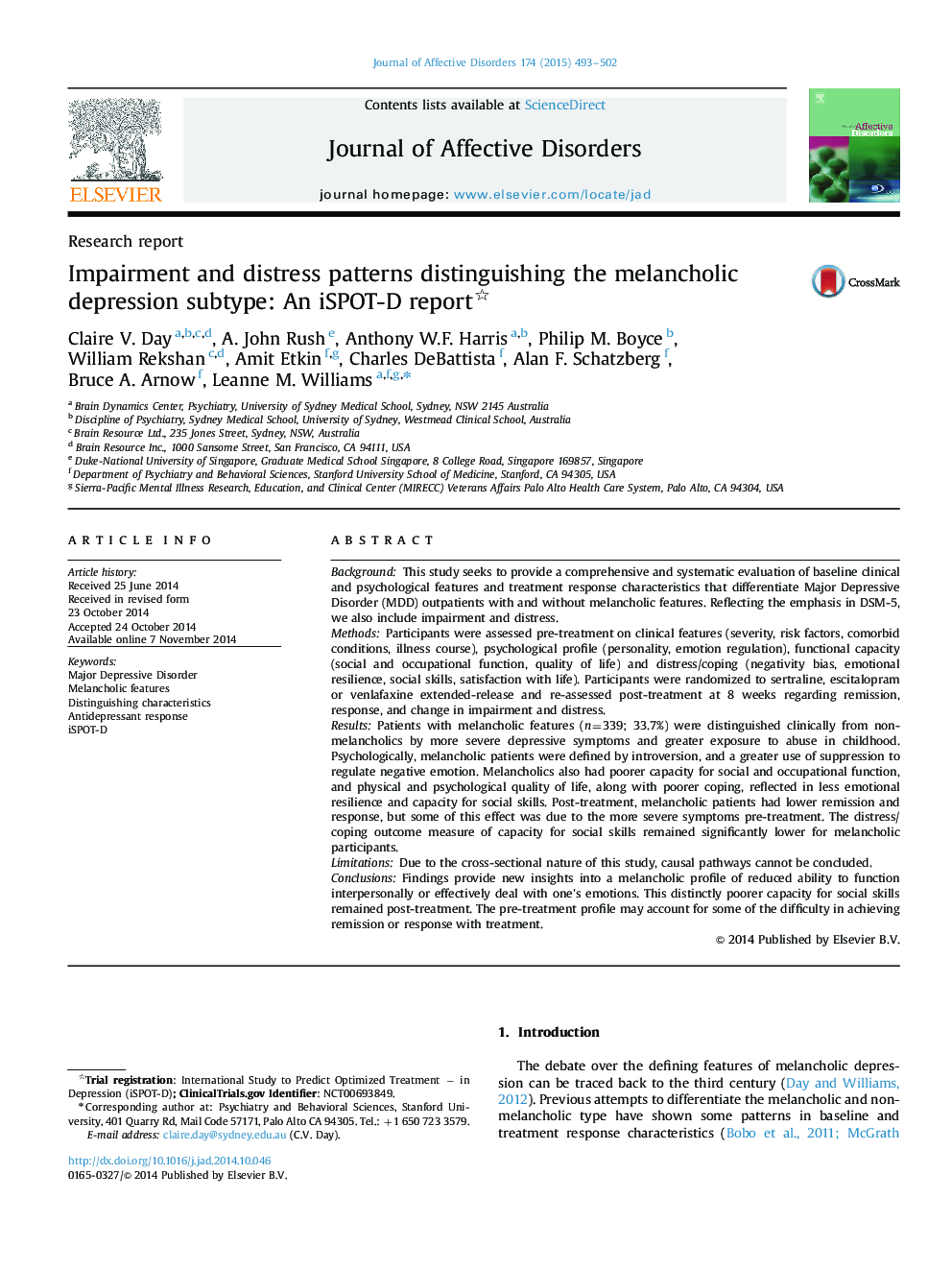| کد مقاله | کد نشریه | سال انتشار | مقاله انگلیسی | نسخه تمام متن |
|---|---|---|---|---|
| 6231755 | 1608151 | 2015 | 10 صفحه PDF | دانلود رایگان |

- An investigation into the melancholic MDD profile at baseline and after treatment.
- Melancholic MDD was qualitatively distinguishable from non-melancholic MDD by:
- Higher symptom severity, greater exposure to early life abuse and lower education.
- Reduced ability to function interpersonally and effectively deal with emotions.
- Poorer response and capacity to seek out social support post-treatment.
BackgroundThis study seeks to provide a comprehensive and systematic evaluation of baseline clinical and psychological features and treatment response characteristics that differentiate Major Depressive Disorder (MDD) outpatients with and without melancholic features. Reflecting the emphasis in DSM-5, we also include impairment and distress.MethodsParticipants were assessed pre-treatment on clinical features (severity, risk factors, comorbid conditions, illness course), psychological profile (personality, emotion regulation), functional capacity (social and occupational function, quality of life) and distress/coping (negativity bias, emotional resilience, social skills, satisfaction with life). Participants were randomized to sertraline, escitalopram or venlafaxine extended-release and re-assessed post-treatment at 8 weeks regarding remission, response, and change in impairment and distress.ResultsPatients with melancholic features (n=339; 33.7%) were distinguished clinically from non-melancholics by more severe depressive symptoms and greater exposure to abuse in childhood. Psychologically, melancholic patients were defined by introversion, and a greater use of suppression to regulate negative emotion. Melancholics also had poorer capacity for social and occupational function, and physical and psychological quality of life, along with poorer coping, reflected in less emotional resilience and capacity for social skills. Post-treatment, melancholic patients had lower remission and response, but some of this effect was due to the more severe symptoms pre-treatment. The distress/coping outcome measure of capacity for social skills remained significantly lower for melancholic participants.LimitationsDue to the cross-sectional nature of this study, causal pathways cannot be concluded.ConclusionsFindings provide new insights into a melancholic profile of reduced ability to function interpersonally or effectively deal with one׳s emotions. This distinctly poorer capacity for social skills remained post-treatment. The pre-treatment profile may account for some of the difficulty in achieving remission or response with treatment.
Journal: Journal of Affective Disorders - Volume 174, 15 March 2015, Pages 493-502